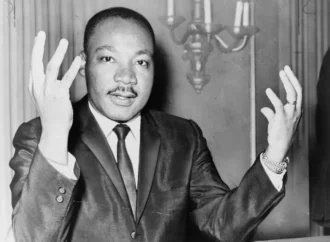It’s telling of our times when Americans have to be told to do the simplest of tasks. It’s also telling when they have to be told how to do that same task.
Such is the case with a back to school memo recently released by professors from Princeton, Harvard, and Yale. Their simple advice? Think for yourself.
“Thinking for yourself means questioning dominant ideas even when others insist on their being treated as unquestionable. It means deciding what one believes not by conforming to fashionable opinions, but by taking the trouble to learn and honestly consider the strongest arguments to be advanced on both or all sides of questions—including arguments for positions that others revile and want to stigmatize and against positions others seek to immunize from critical scrutiny.”
But the professors go on to explain that there is a foundational element needed before one can think for oneself. That element is truth:
“The love of truth and the desire to attain it should motivate you to think for yourself. The central point of a college education is to seek truth and to learn the skills and acquire the virtues necessary to be a lifelong truth-seeker. Open-mindedness, critical thinking, and debate are essential to discovering the truth. Moreover, they are our best antidotes to bigotry.”
This may explain why American students now need to be reminded to think for themselves. The fact is, many cannot because they’ve been crippled. We’ve removed the foundational support of truth, teaching them instead that truth is relative for different individuals in different places at different times. As a result, students are confused and swing wildly from one opinion to the next.
For proof of this, one need only look to a handful of recent studies. One released in 2017 suggests that 60 percent of those under 35 now believe that right and wrong are fluid and changeable. Another suggests that 80 percent of college freshmen are unable to discern between fact and opinion.
C.S. Lewis once said:
“If you look for truth, you may find comfort in the end: if you look for comfort you will not get either comfort or truth—only soft soap and wishful thinking to begin with and, in the end, despair.”
We’ve long sought to make everyone at ease by subduing objective truth and exalting subjective feelings. But as the college professors above seem to be realizing, this has created an army of students filled with passion but devoid of actual thought.
If we want to avoid despair and return to a more peaceable society, is it not time we reestablish the value of objective truth?
















Leave a Comment
Your email address will not be published. Required fields are marked with *